Meet five of the youngest election candidates: 'I haven’t got my A-level results yet'
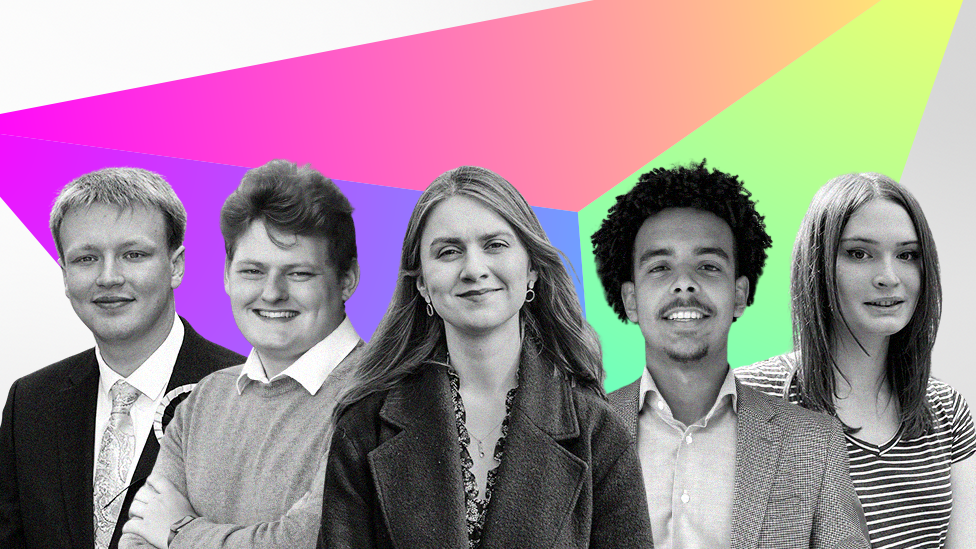
- Published
They’re all under 30 and determined to make a difference - here, five of the youngest candidates tell the BBC why they’re standing in next month's general election.
Last Thursday, Pedro Da Conceicao sat his final A-Level exam - but instead of celebrating with friends he was straight back out on the campaign trail.
At 18 years old, Pedro - who is running as an independent in west London - is thought to be the youngest candidate standing in this year's election.
He’d wondered about politics as a potential future career - but it was only when the general election was called at the end of May that he decided he would run to be an MP.
"My mum thought I was joking when I first told her," he says.
Born in Portugal, Pedro moved to the UK with his mother when he was baby, and says it was the underrepresentation of young people in Parliament which motivated him to stand.
He cites his mother, an NHS nurse, as an influence on his politics.
"I saw my mum come to the UK as an immigrant and work really, really hard," he says. "I saw first hand the benefit of immigrants and how they could help our economy."
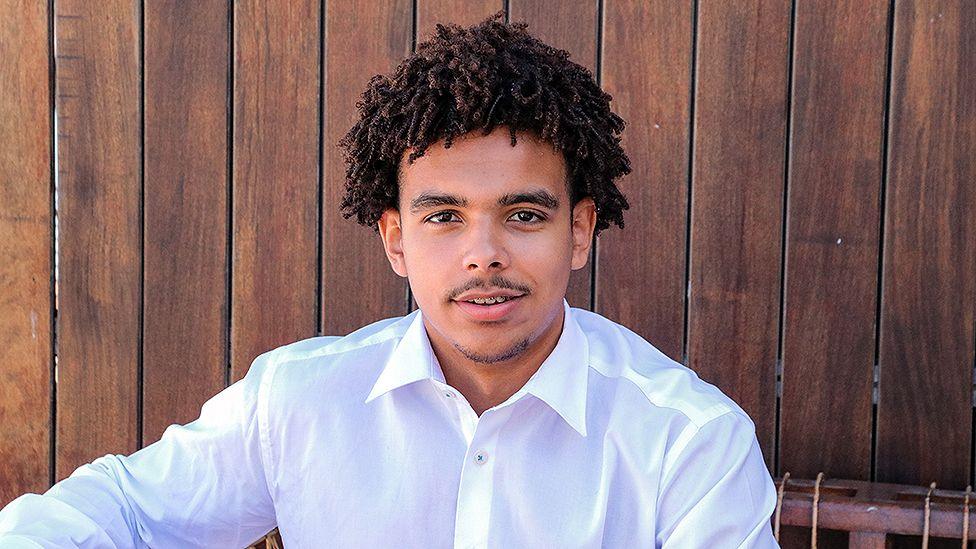
Pedro hopes to inspire other young people to get into politics
Pedro also wants to see more investment in public services and efforts to tackle knife crime.
He's seen some of his peers turn to drugs and gangs to make money to support their families. But, he says, many politicians are out of touch with his reality.
"How can you expect people that have been privately educated or are way older to solve an issue that they can't relate to?”
Running as an independent, without financial backing or a team behind him, has been a challenge.
He covered the £500 deposit to stand - which is returned if a candidate gets 5% of votes cast - through a crowdfunder, as well as using earnings from his part-time restaurant job.
He acknowledges winning Ealing Southall, a safe Labour seat, is a longshot.
"But hopefully I can inspire more young people to get involved in politics."
The average age of MPs has remained around 50 for the past 45 years.
Political journalist Michael Crick says while "there's always been young candidates", it's possible more could be elected this time.
He points to a number of Labour candidates in their 20s who are running in seats which are potentially winnable. And if current polls are accurate, he says there could be a big turnover of MPs - with lots of new Labour faces.
That, combined with the large number of experienced MPs standing down, could mean a drop in the average age of the new Parliament.
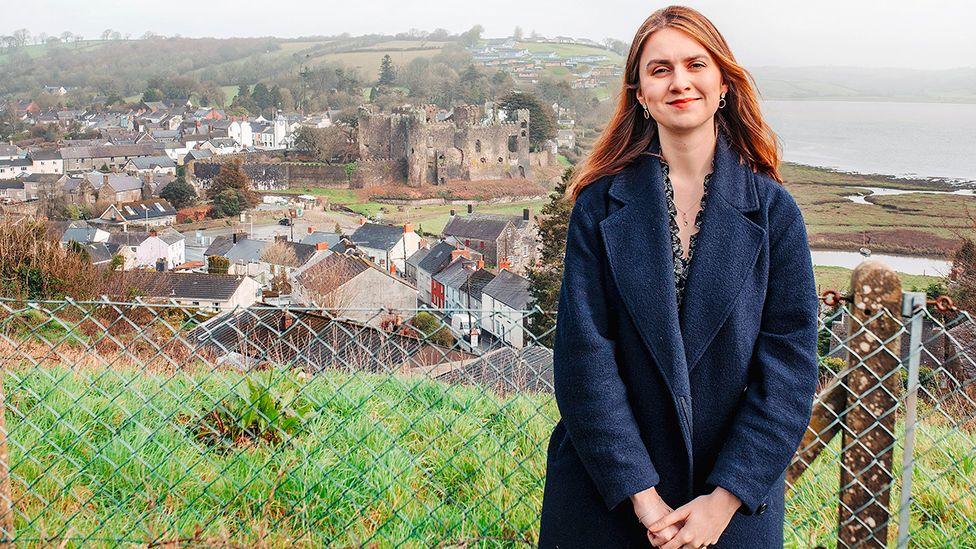
Martha is 26 - the same age as the youngest MP in the last Parliament
Labour candidate Martha O'Neil is hoping to be one of those fresh faces. The 26-year-old is standing in a new Welsh seat.
Martha grew up in Ammanford, a former mining town, and was raised by her mum after her dad died when she was 10.
It was her family's reliance on state support that inspired her to get into politics.
Using her education maintenance grant to buy the books she needed to prepare for university, Martha won a scholarship to Cambridge and went on to work as a civil servant.
She believes young people have a unique perspective they can bring to politics, and that's what she hopes to do in Caerfyrddin.
"Making sure that we platform young voices is critical to make sure that we have a democracy that truly represents the UK as a whole."
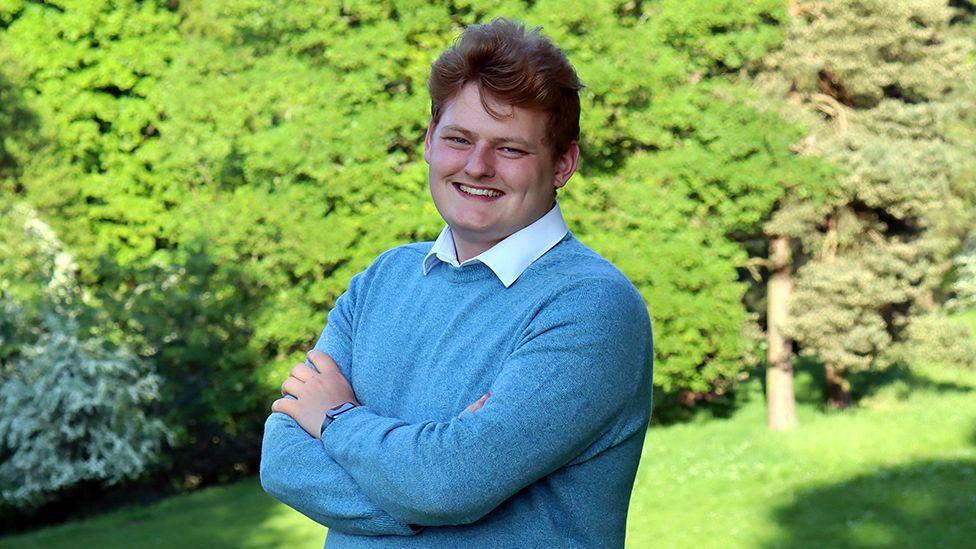
Luke says the reaction to his age has been more positive on the doorstep than online
Luke Allan Holmes - who is standing for the Conservatives - agrees.
The 21-year-old says while most voters are "pleasantly surprised" to see someone his age standing for Parliament, some on social media have questioned whether he has the life experience to be an MP.
"I didn't go to university," says Luke, whose previous jobs include staffing the checkouts at his local branch of Tesco and working for HMRC. "People need to realise that actually some young people have gone through a lot in life and have a lot to offer."
Growing up in County Durham, Luke says he felt the area was "taken for granted" by Labour politicians.
The secondary school he went to was rated inadequate and poor public transport meant he had to move closer to Durham to go to college.
"I saw those challenges firsthand," he says, "and that's what drove me to want to do something about it."
It was the 2019 general election which really sparked his interest in politics, when the Conservatives won a string of former Labour strongholds in the north of England, including nearby Bishop Auckland.
Even so, Luke admits he had reservations about standing to be an MP in the City of Durham. Since becoming a councillor in 2021, he says he has experienced abuse both online and in person.
"I've had people ringing me up in the middle of the night," he says. "Or people coming up to me in the street and saying unpleasant things.
"But that's one of the reasons why I want to stand - because we need to make sure that doesn't happen.”
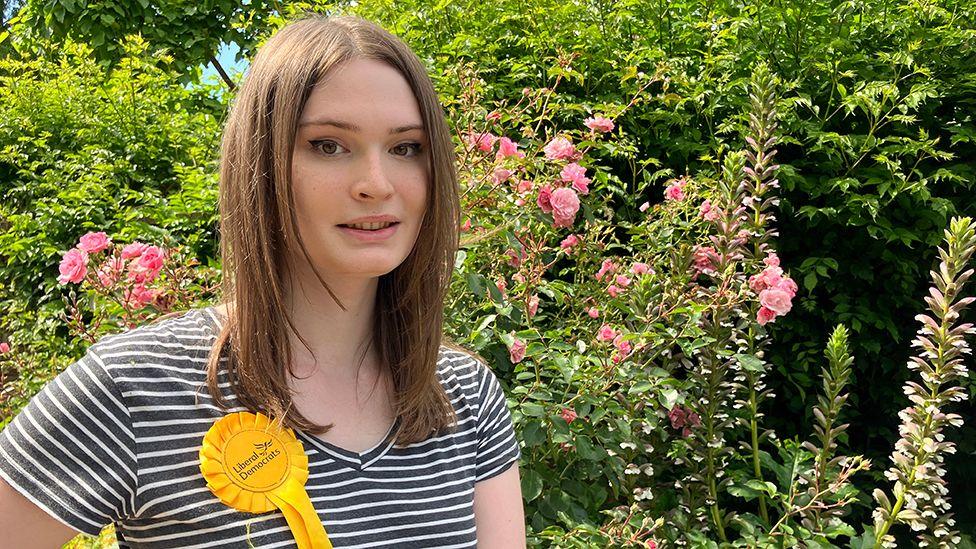
As a trans woman, Rebecca is well aware of the abuse being in the public eye can bring
Rebecca Jones has just finished her degree in politics and is standing for the Liberal Democrats. She says many politicians don't understand the concerns of young people like her.
She worked part-time in a cinema alongside her studies to be able to afford her rent. Now full-time, she says more than 60% of her wages go on housing.
The 21-year-old wants to see maintenance grants brought back to help students cover living costs, as well as action to tackle unaffordable rents.
Although she was only 13 when the UK voted to leave the European Union, it was the impact of Brexit on young people that got her into politics.
By the age of 16 she had joined the Lib Dems and leafleted for the party at the 2019 general election.
In 2022 she ran to be a local councillor in London, and the following year stood in Devon, where she grew up.
She was "gutted" to discover she was only 18 votes short of being elected, but was determined to run again - this time to be an MP in Hackney North and Stoke Newington.
As a trans woman, Rebecca is well aware of the abuse being in the public eye can bring. But she's encouraged by the support of other young people, particularly from the LGBT community.
"If I get 10 votes or 10,000 votes, just having the knowledge that I've enabled somebody to get more involved in the democratic process makes every single bit worth it.”
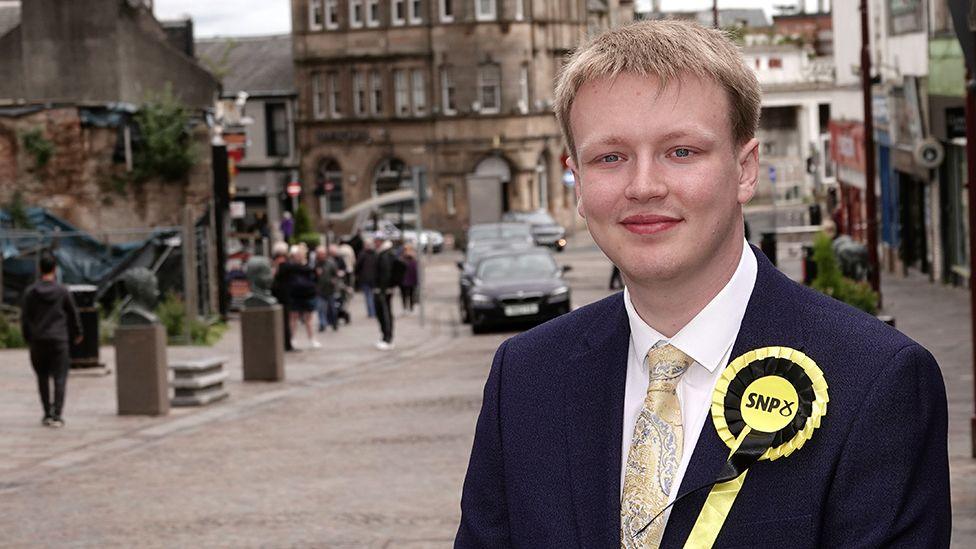
Ross became a councillor aged 21
As a local councillor, Ross Clark has also been underestimated because of his age and experienced online abuse.
At 21 he was the youngest member of South Lanarkshire Council when he was elected two years ago, while studying sports coaching at university.
"You feel you need to prove yourself a bit more to be taken seriously," Ross says. "Sometimes when I walk in the council building people think I'm an intern."
Now 23, he's standing for the Scottish National Party in a seat where he has lived all his life.
He first became interested in politics during the 2014 Scottish independence referendum, when he was "raging" he was too young to vote.
But it was after seeing the difference politicians could make to people's lives as a councillor that he decided to run to be an MP.
Ross is well aware of the challenges that could lie ahead if he wins Hamilton and Clyde Valley.
He cites the experience of the SNP's Mhairi Black, who was 20 when she was elected in 2015 and is standing down at this election.
She blamed social media abuse and the "toxic" working environment of Westminster for contributing to that decision.
Despite this, Ross is still determined to give this his best shot.
"[Young people] aren't just our future, they're also our present, and they need to be involved in that decision-making process."
